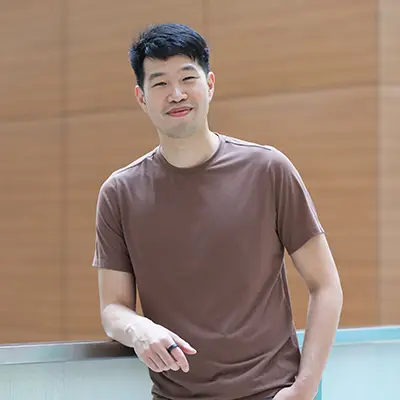From a smart clinical chat assistant to a real-time command and communication system, artificial intelligence is being used to help Singapore's healthcare sector stay on top of the fast-evolving situation
Healthcare facilities and technology companies here are tapping artificial intelligence (AI) technology in the fight against the Covid-19 outbreak.
They include hospitals such as National University Hospital (NUH) and Tan Tock Seng Hospital (TTSH), while several local tech firms have AI offerings now being used in coronavirus mitigation.
According to the Infocomm Media Development Authority, AI refers to the study and use of intelligent machines to mimic human action and thought. It is associated with learning, problem-solving and pattern recognition.
NUH and TTSH are using a clinical chat assistant smartphone app by Singapore AI start-up Bot MD, which helps doctors and front-line healthcare workers stay abreast of the fast-changing information relating to Covid-19.
The app uses AI to power its natural language interface and to extract clinical information from large swathes of content from different data sources.
Dr Jen Wei Ying, associate consultant at the Department of Haematology-Oncology at the National University Cancer Institute, Singapore, says: "Whether I am looking for Covid-19 clinical workflows, at how to contact the pandemic team, or to keep up to date on our hospital's latest operational directives, I am able to search for and obtain all this information instantly on the Bot MD app."
She says the app's biggest value is in providing her with clinical information whenever and wherever she needs it.
Bot MD was founded in 2018. Its app is currently used by 13,000 doctors in more than 52 countries. Bot MD chief executive officer (CEO) and founder Dorothea Koh says: "Think of us like a Google Assistant or Apple Siri, but designed for busy healthcare professionals."
She says the app can be quickly trained on any hospital or clinical content and answer questions from medical staff. The content can come from hospitals, medical associations and the Ministry of Health (MOH).
"Whenever clinical staff need an answer to questions like who's on call or guidelines on hospitalspecific protocols, they can simply type a query (and the app) will instantly respond with the right answer.
"With our partner hospitals such as NUH and TTSH in Singapore, we trained the AI on hospital-specific content such as hospital protocols, drug dosage information, drug formulary information, on-call rosters, disease guidelines, Covid-19 operational directives and the latest MOH circular updates," says Ms Koh.
AI is also being used at TTSH's new Command, Control and Communications (C3) system for healthcare, which was rolled out at the end of last year after two years of development.
Developed jointly by TTSH and MOH's IT arm Integrated Health Information Systems (IHiS), the system provides real-time visibility of the hospital's ground operations - from the moment patients are admitted to the hospital to when they are discharged, while keeping track of resources such as hospital workers, beds, critical equipment, including personal protective gear and other supplies.
The system uses AI to predict situations before they occur - thus giving information on how resources could be better allocated - and to provide insights for better decision-making.
IHiS CEO Bruce Liang says that the system can predict future care demand and enables "autonomous decision-making with more than 600 pre-defined formulas".
He adds: "(The system) helps us go beyond hindsight to foresight. During this Covid-19 situation where there is an escalating number of patients, speed and foresight are essential."
In early February, TTSH saw a surge in attendance at its screening centre for Covid-19. This coincided with a rise in inpatient admissions at the National Centre for Infectious Diseases (NCID), which is located next to TTSH.
Guided by the C3 system, TTSH was able to pull together the manpower, equipment and other supporting resources to open five wards at NCID and strengthen support at its screening centre.
AI TEMPERATURE SCREENING AND CONTACT TRACING
AI is also used in temperature screening here. IHiS and local medical tech start-up KroniKare have developed a solution called iThermo that uses AI to spot febrile people in a crowd, reducing the need for a manual process. It works even if people are wearing sunglasses, surgical masks or headgear.
The solution, which comprises a smartphone fitted with thermal and 3D laser cameras, is currently being piloted at the IHiS headquarters in Serangoon North and St Andrew's Community Hospital.
In a blog post on its website in late February, KroniKare said it had received more than 200 inquiries across various industries, requesting some 300 units.
A real-time contact tracing and communication system created by Singapore-based AI firm Sqreem Technologies is being used by the South Africa government.
Sqreem, which was incorporated in Singapore in 2010 and has about 130 staff, has a software called Channel Sqreem, which can track people using their mobile device ID down to a 5 sq m grid. It does this without needing to know any personal information of the device owner.
AI MUST COMPLEMENT MEDICAL SYSTEMS TO BE USEFUL
Sqreem CEO and founder Ian Chapman-Banks says: "Once a person is found to have tested positive for Covid-19, all the health authorities need to do is to run the home and work addresses of the individual through Channel Sqreem."
The software then uses AI and machine learning models to automatically determine how many devices that are carried by other people had risky contact with that person over the previous 14 days.
Relevant agencies can then send messages in the form of advertisements to the next website or app that the owner of the device browses or uses.
These messages can be information on how to check for Covid-19 symptoms, local health support contact details or a message for them to contact the local health authorities.
Channel Sqreem was rolled out in South Africa at the end of last month and has an accuracy rate of 90 per cent, says Sqreem.
Like other AI and machinelearning solutions, its accuracy improves as its AI continues to learn and optimise itself.
The software is currently in use only in South Africa. Mr Chapman-Banks says the company is in talks with potential clients across Asia, Europe and the Middle East.
HOW AI HELPS
Many experts say AI is an effective technology to battle the coronavirus pandemic.
Ms Malina Platon, Asean managing director of New York-based AI firm UiPath, points to the use of AI in combination with automation technologies such as Robotic Process Automation (RPA).
RPA allows software - the "robot" - to mimic the actions of a human in digital systems. For instance, a software robot can watch and repeat what a person does in an application's graphical user interface.
Ms Platon says RPA can collect vast amounts of data, such as patient records, and feed them into the AI algorithms, which can then help doctors and healthcare professionals make quicker and better decisions.
In January, London-based AI firm BenevolentAI used its extensive scientific literature and biomedical research data to look for links between Sars-CoV-2, the virus that causes the Covid-19 disease, and potentially effective drugs against it. The firm found a drug called baricitinib, which could potentially slow down the effects of the coronavirus. The drug is undergoing clinical trials.
Mr Mike Davie, CEO of data and technology firm Quadrant, says: "Unlike the Spanish flu pandemic or even Sars, today we are generating masses of data that we can pump into AI algorithms that could help forestall or even prevent another pandemic of this kind."
He pointed to how location data can be used in combination with other types of data to uncover new insights.
"For example, we know that the severity of Covid-19 in part depends on viral load and dosage. And so marrying medical data (such as chest X-ray results) with location data, we may be able to uncover hot spots where people contract the virus more seriously," he says.
Mr Liu Feng-Yuan, CEO and co-founder of home-grown AI start-up BasisAI, cautions, however, that AI has to be used in combination with other pandemic-fighting efforts.
"It's not a single answer to the challenging situation we are faced with. Technology alone will not help us do away with the underlying conditions necessary for a successful battle against Covid-19," he says.
But with the right systems and checks in place, he adds, AI will provide public health officials with more accurate overviews of patterns.
© 2020 Singapore Press Holdings
This article was written by Trevor Tan from The Straits Times and was legally licensed through the NewsCred publisher network. Please direct all licensing questions to legal@newscred.com.






